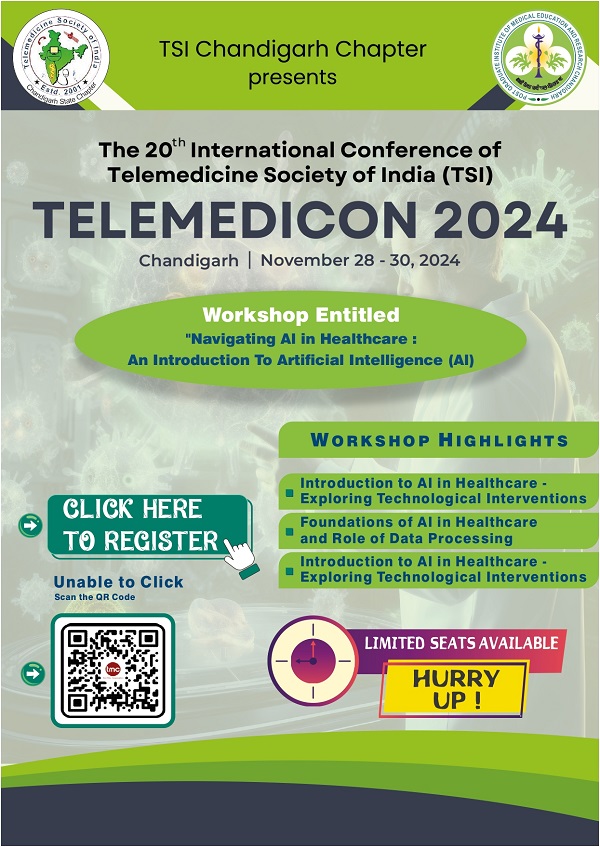Telehealth Newsletter
Official Newsletter of Telemedicine Society of India

What is New?
Next month, we gather at the Post Graduate Institute of Medical Education and Research (PGIMER) in Chandigarh from 28th to 30th November for TELEMEDICON 2024, our highly anticipated annual conference. This issue includes the detailed program for the three days, allowing you to plan your participation and maximize your experience. With a central theme of ‘AI in Healthcare and Virtual Care’, the conference will host numerous sessions focused on these transformative areas.
The response has been tremendous, with over 50 abstracts submitted. Accepted abstracts and selected articles will have the opportunity for publication in ‘Telehealth and Medicine Today (THMT)’, a prestigious open-access, peer-reviewed journal indexed in Scopus, DOAJ, and other leading databases. THMT offers a multidisciplinary platform for exploring telehealth, clinical informatics, and digital health innovations through medical, policy, and economic lenses.
Participants will earn 11 accredited credit hours from the Punjab Medical Council, adding valuable professional development to the experience. Numerous interactive workshops are also planned, promising hands-on insights and skill-building.
Additionally, this issue features other compelling articles that are sure to enrich your knowledge and inspire new ideas. Dr.Krishnakumar from UP reports about the mid-term conference, Dr.Ganapathy about Space Ambulance and Dr.Ankur about organ donation promotion.
Thank You
Dr. Sunil Shroff
Chief Editor
Vice President, TSI
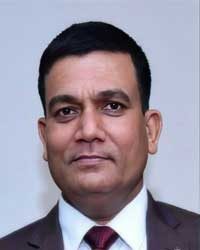
Two Days Midterm Conference of Telemedicine Society of India – TeleMed UPrise 2024
Dr. Krishna Kumar
Organizing Secretary, “TeleMed UPrise 2024” | National Treasurer, TSI Hqrs | Honorary Secretary- TSI Uttar Pradesh Chapter | Director- KnackSun Life Sciences and CEO – ClinicOnClick
Telemedicine, defined as the practice of healthcare delivery for patients by doctors at a distance, has been an evolving field in India since its initiation in the year 2000. Now, it stands on the cusp of its silver jubilee. The Telemedicine Society of India (TSI) was established as a non-profit professional body dedicated to promoting, expanding, and advancing telemedicine services across the nation. TSI’s membership includes a diverse range of professionals – doctors, engineers, scientists, students, paramedics, health-related research institutions, hospitals, and NGOs – all of whom collaborate to fulfill TSI’s objectives and goals. Through partnerships with Niti Aayog and the Ministry of Health & Family Welfare (MoHFW), TSI members have played a crucial role in developing India’s Telemedicine Practice Guidelines (TPG), officially notified in March 2020.
India’s government initiatives, such as Ayushman Bharat/e-Sanjeevani and the Pradhan Mantri Jan Arogya Yojana (PM-JAY), have been instrumental in supporting telemedicine’s growth, specifically targeting rural-urban health access disparities and reducing out-of-pocket expenses for patients.
TSI’s Midterm Conference, titled “TeleMed UPrise 2024,” was held on September 20-21 in Prayagraj, organized by the TSI-UP chapter. This event emphasized engaging the next generation of technical and medical students, as well as enterprises, to foster sustainable, holistic growth in the field.
The two-day conference featured discussions on the role of digital health and emerging technologies, with panel discussions covering healthcare industry innovations, remote health monitoring, tele-stroke models, tele-ophthalmology, tele-agri-medicine, and more. Delegates attended insightful talks by experts sharing practical insights into emerging applications, while keynote speakers broadened their perspectives, utilized networking opportunities, and engaged with one another on new solutions for healthcare challenges.
Day 1: Bringing Telemedicine to the Next Generation
The first day of the conference introduced a “conference at your doorstep” format, with three sessions held at different academic campuses across Prayagraj:
1. United Medical College, Prayagraj
2. MLN Medical College, Prayagraj
3. Department of Physics, University of Allahabad
Dr. Krishna Kumar, Organizing Secretary, welcomed the attendees and emphasized that this unique approach mirrors telemedicine’s goal of providing healthcare “at the doorstep.” Dr. Murthy Remilla, former TSI Honorary Secretary, highlighted the evolution of telemedicine in India and the impact of TPG issued by MoHFW. He focused on technological advances supporting telemedicine as a career and a promising start-up field. Dr. Umashankar emphasized integrating telemedicine into academic curriculums, while Ms. Anita Stalin highlighted Lean Six Sigma training and certification as an upskilling opportunity for students. Dr. Ratan Srivastava and Dr. Surya Bali discussed the practical applications of telemedicine for healthcare professionals.
Dr. Pramod Kumar (United Medical College), Dr. Vatsala Mishra (MLN Medical College), and Dr. K.N. Uttam (University of Allahabad) expressed gratitude to TSI for its outreach efforts and expressed interest in more comprehensive sessions on telemedicine for their faculty and students.
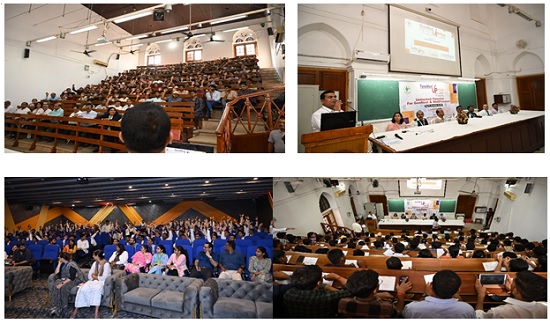
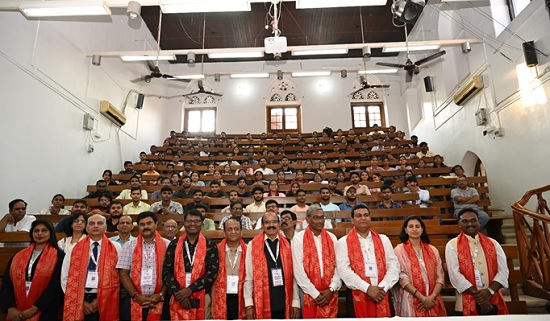
Day 2: Sessions at Allahabad Medical Association
Day two of the conference, held at the Allahabad Medical Association, offered an opportunity for deeper engagement across specialties, as attendees explored the expansion and applications of telemedicine technology. The session on “Growth & Application of Advanced Technologies for Healthcare Delivery” opened with a welcome from Dr. Krishna Kumar, who spoke about the theme, “Unlimited Potential for GenNext and Medipreneurs.” He celebrated a wave of innovation among young MediPreneurs who are creating transformative healthcare solutions.
Dr. Ratan Srivastava provided insights into TSI’s efforts and the TeleMed UPrise initiative aimed at enhancing healthcare access. Vimal Wakhlu, past TSI President, presented on the future of telemedicine in India. He discussed how emerging technologies such as AI, IoT, blockchain, big data analytics, extended reality, and drones can bridge the healthcare gap, particularly in remote areas. Dr. Anish Sinha discussed the Electronic Vaccine Intelligence Network (eVIN), a government initiative that has modernized vaccine stock management, supporting healthcare workers in delivering vaccines more effectively.
In the second session, speakers explored telemedicine’s broad potential. Dr. Arti Pawaria discussed how telemedicine and AI work together in clinical diagnostics, while Dr. Vinay Singh, Chief Scientist at Orange Neurosciences, highlighted telemedicine’s role in mental health. He emphasized the mental health crisis in India and how telemedicine can offer accessible, scalable solutions.
Sessions on Women’s Empowerment and Healthcare at Kumbh Mela
In a session on “Telemedicine and Women’s Empowerment,” Dr. Uma Nambiar discussed telemedicine’s impact on women’s health-seeking behavior, while Dr. Meenu Singh from AIIMS, Rishikesh, presented on telemedicine’s benefits for maternal and child health, reducing the need for travel and associated infection risks. Dr. Manushi Srivastava from IMS BHU emphasized the importance of telemedicine education for underserved communities.
The conference’s fourth session focused on telemedicine’s role in mass healthcare delivery during large gatherings, specifically the upcoming Kumbh Mela. The panel, led by Dr. Krishna Kumar, discussed telemedicine as a means to manage the expected footfall of 40 crore pilgrims, proposing a hybrid model combining digital and physical healthcare to address the challenges of this large-scale event.
Innovative Telemedicine Startups and Future Perspectives
The final session, “Telemedicine Awareness, Technology & Start-ups: GenNext in Transforming TM as an Enterprise,” was informative and forward-thinking. Dr. S. Umashankar emphasized integrating telemedicine into healthcare education, which has seen exponential growth post-COVID-19. Dr. Amitabha Kar highlighted the need for real-time telemedicine solutions in rural areas, especially for agricultural and occupational health hazards.
Outcomes and Future Prospects
This midterm conference explored the technical, practical, and social aspects of telemedicine, underscoring its potential for public healthcare, especially in large-scale gatherings like Kumbh Mela. TSI committed its full support to the Government of Uttar Pradesh for Kumbh 2025, offering expertise and resources for telemedicine integration into healthcare efforts for this event.
A souvenir was released at the conference, featuring messages from dignitaries, including the Governor of Uttar Pradesh and the Chief Minister. Appreciation certificates were distributed to participants, celebrating their contributions. Over 800 delegates attended, including 450+ students from medical colleges and 250+ students from the University of Allahabad’s Physics Department. The conference proceedings will be available online, allowing members of TSI and the public to access valuable insights into telemedicine’s impact and potential in India.
This successful conference underscored telemedicine’s vital role in India’s healthcare future, driven by innovation, collaboration, and a commitment to bridging health disparities across regions.
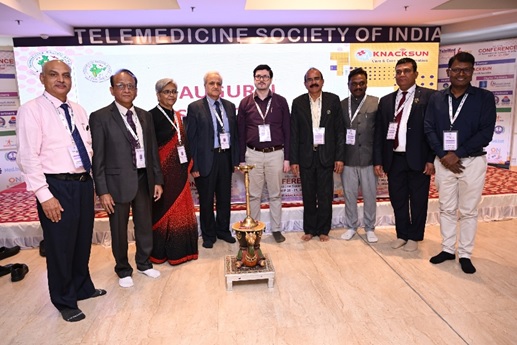
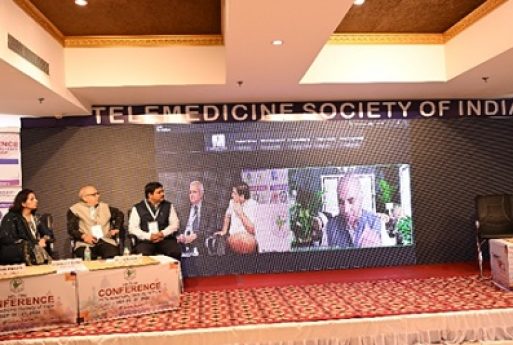
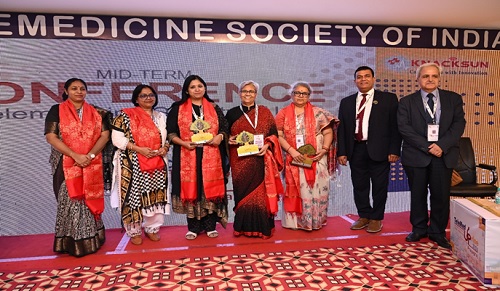
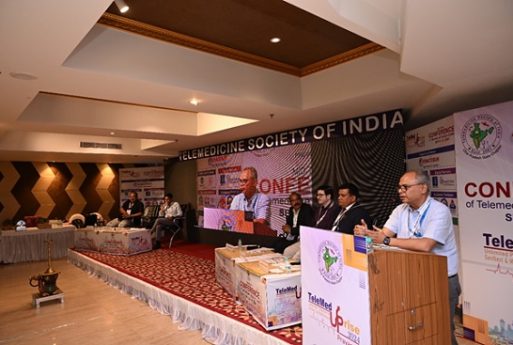
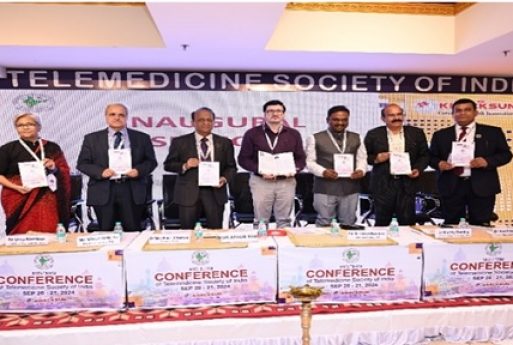
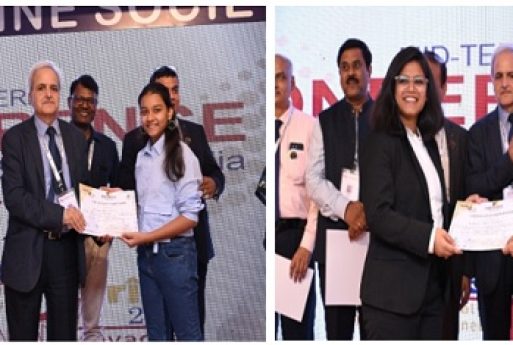
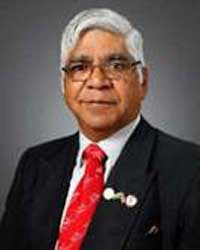
SPACE AMBULANCE
Dr. K. Ganapathy
Distinguished Visiting Professor IIT Kanpur | Distinguished Professor The TamilnaduDr MGR Medical University | Emeritus Professor National Academy of Medical Sciences | Past President : Telemedicine Society of India, Neurological Society of India, Indian Society for Stereotactic & Functional Neurosurgery | Formerly WHO Digital Health Expert | Director Apollo Telemedicine Networking Foundation & Apollo Tele Health Services
For many years it has been the dream of Digital Health enthusiasts to use cutting-edge technology to provide need-based, cost-effective, appropriate, technology-enabled remote healthcare 24/7 to anyone, anytime, anywhere.
As early as 2015, I was personally involved in setting up a 24/7 Tele emergency service in the Himalayas .
In the last 9 years, several patients diagnosed remotely were transferred by surface or helicopter to the nearest tertiary hospital. Though almost 3 miles above sea level with temperatures of -25C these patients were still on earth!!!
What does one do when the patient is 230 miles above the earth and remote diagnosis confirms that surgical intervention or ICU management is required immediately? To start building a prototype Space Ambulance (hoping that it will never ever be used!) requires extraordinary involvement, passion, and dedication besides knowledge and skills.
But then, what else would you expect from an astronaut who has spent 49 days in space in four shuttle missions, three spacewalks, the first human to perform an in-flight repair to the Space Shuttle’s exterior, and also the first to take a “ SELFIE” in space.
It was indeed a privilege to spend 1 hour, one to one (on Saturday a holiday) with Dr Stephen Robinson former astronaut and presently Head, Dept of Aerospace and Mechanical Engineering, University of California, Davis.
Humility personified, with the enthusiasm of a Seenager (like me, he is an elderly teenager!), Prof Robinson gave me a glimpse of what his 17 Ph.D students are doing under his tutelage.
Though there will be no traffic jams, designing a well-equipped Ambulance that will precisely dock with a spacecraft traveling at 28,000 km per hour, 400 km above the earth, presupposes mastery of scores of multi-disciplinary sciences.
As Dr Stephen pointed out funding for such a project would really take off (pun intended) only when there is a use case!! Today the whole world is only talking about RoI to justify investment. While there could be spinoffs benefitting earthlings, many would question funding to build a Space Ambulance.
For the individual astronaut or space tourist critically ill RoI’s should not matter. Dr Stephen indicated that it would take 2.5 hours for the space ambulance to reach the astronaut (sometimes this is the time taken on Earth also!!).
For gizmos, jeeks, and space enthusiasts preliminary details of the proposed prototype are given below along with the patient module.
This article has been previously published on https://www.digitalhealthnews.com/ Please click here to view the Latest daily healthcare news & updates-Digital Health News.
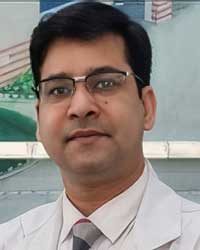
Webinar on deceased organ donation in India
Dr. Ankur Mittal,
All India Institute of Medical Sciences Rishikesh – Urology
MBBS, MS, MCh (Urology)|Secretary, TSI-Uttarakhand State Chapter
A highly informative and engaging webinar on “Deceased Organ Donation” was organised by Telemedicine Society of India on 9th October 2024. The event was coordinated by Dr. Ankur Mittal and saw the participation of multiple speakers, who shared their expertise on different aspects of the subject. The webinar aimed to raise awareness about deceased organ donation, discuss technological advancements, and highlight the role of voluntary training programs and organizations in this noble cause.
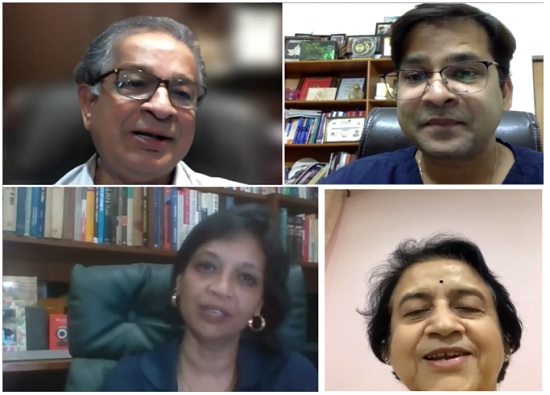
Welcome Address
The webinar commenced with a warm welcome address delivered by Prof. Meenu Singh and Mr. Umashankar, who set the tone for the session by emphasizing the importance of organ donation. They spoke about the need for heightened awareness and education to increase organ donation rates, particularly in India, where the demand far exceeds the supply.
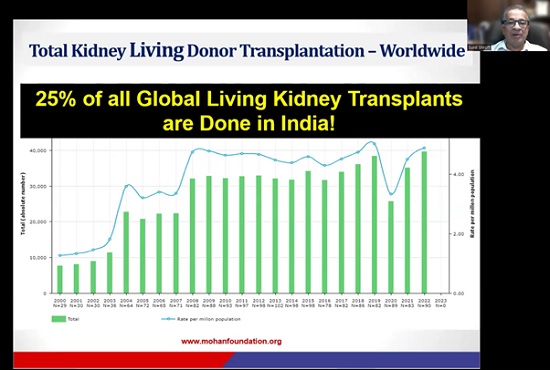
Presentation on Technology in Organ Donation
Dr.Sunil Shroff presented a detailed talk on “How technology has been a game-changer in organ donation in India.” He outlined how technological advancements, such as digital databases for organ donors and recipients, have streamlined the process, making it more efficient and transparent. He discussed the integration of telemedicine and AI in predicting transplant outcomes, improving the success rate of organ transplants. Dr. Shroff highlighted India’s efforts to use technology to match donors with recipients in a timely manner, thereby saving more lives.
Organ Donation Ambassador – Voluntary Training Program
The webinar also introduced participants to the Organ Donation Ambassador Voluntary Training Program in India. The program was discussed as a crucial initiative aimed at training individuals to become advocates for organ donation. Through voluntary training, these ambassadors are expected to raise awareness and educate the public about the importance of deceased organ donation, which remains a critical need in the country.
MOHAN Foundation’s Contributions
MOHAN Foundation, a leading non-governmental organization working in the field of organ donation in India, was also discussed. The foundation’s relentless efforts in conducting awareness campaigns, providing training, and facilitating transplants were highlighted. Their initiatives, including offering support to donor families and transplant coordinators, have had a significant impact on promoting deceased organ donation across India.
Online Courses for Training Transplant Coordinators
The session also provided valuable information regarding online courses aimed at training transplant coordinators. These courses are designed to equip coordinators with the necessary skills to manage organ transplants effectively, ensuring that the complex process is carried out smoothly and in accordance with legal and ethical standards. The role of a trained transplant coordinator is vital in the successful execution of deceased organ donation.
AI in Predicting Transplant Outcomes
A brief discussion was held on the role of Artificial Intelligence (AI) in predicting the outcomes of deceased organ transplants. AI models are increasingly being used to analyze data and predict the likelihood of transplant success, thus enabling medical professionals to make better-informed decisions. This innovation could lead to more efficient use of available organs and improved patient outcomes.
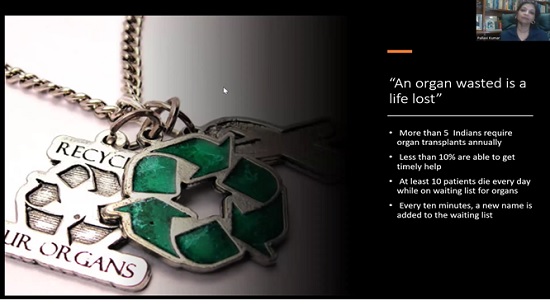
Basics of Organ Donation and Testimonials
Ms. Pallavi shared insights into the basics of organ donation and presented moving testimonials from the families of deceased organ donors. The testimonials served as a reminder of the life-changing impact that organ donation can have on recipients while honoring the selflessness of the donors and their families. Ms.Pallavi’s segment brought a personal and emotional touch to the discussion, highlighting the human aspect of organ donation.
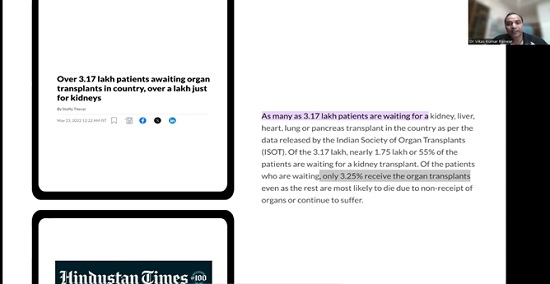
Legislative Framework and Steps for Deceased Organ Donation
Dr.Vikas Panwar provided an in-depth explanation of the steps involved in deceased organ donation and the legislative framework governing it in India. He elaborated on the legal protocols, consent processes, and the role of the National Organ and Tissue Transplant Organization (NOTTO) in regulating organ donation. His presentation clarified the legal responsibilities of healthcare providers and the rights of donor families, ensuring that the entire process is transparent and ethical.
Q&A with Expert Panel
The webinar concluded with a discussion session where expert faculties addressed doubts and questions from the participants. The panel answered queries related to the process of deceased organ donation, eligibility criteria, and the role of technology and legislation in making the process more efficient.
Conclusion
The webinar effectively highlighted the role of telemedicine in disseminating knowledge about deceased organ donation to distant regions, making the meeting accessible to a wider audience. With the advancements in technology, organ donation awareness, and training, the future looks promising for increased organ donation rates in India. The use of online platforms for training, AI for predicting outcomes, and coordinated efforts by organizations like Mohan Foundation will likely lead to a positive shift in the country’s organ donation landscape.
Hospital Guide Foundation conducted one of the largest multispecialty health camps with the gram panchayat in Jewar, UP on 28th Oct.
Ms. Indritta De Mello, our TSI EC member from Delhi, actively promotes telehealth through her ‘Hospital Guide Foundation’ a nom profit organsaiton. Her foundaiton conducted one of the largest multispecialty health camps with the gram panchayat in Jewar, UP on 28th Oct. Continuum of care to be given through our ongoing Telemedicine services & other services in the area. Please find the link the extensive news coverage. https://youtu.be/EHNASrgItIo?si=6EXWYeDXnHGsRbA_
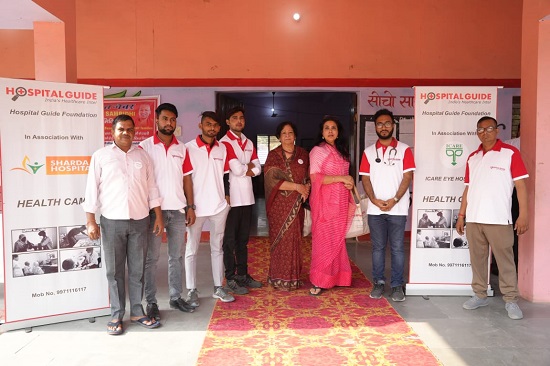
::ANNOUNCEMENTS::
To Register for the conference visit https://www.telemedicon2024.com/
20th International Conference of Telemedicine Society of India (TSI) ‘Telemedicon 2024′
Theme: Virtual Healthcare and Role of AI
Tentative Program Schedule
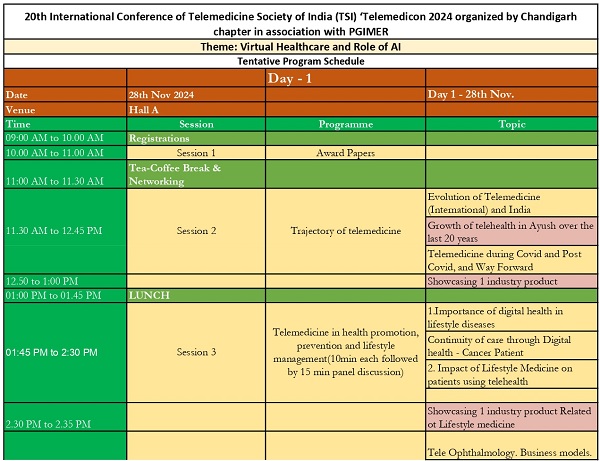
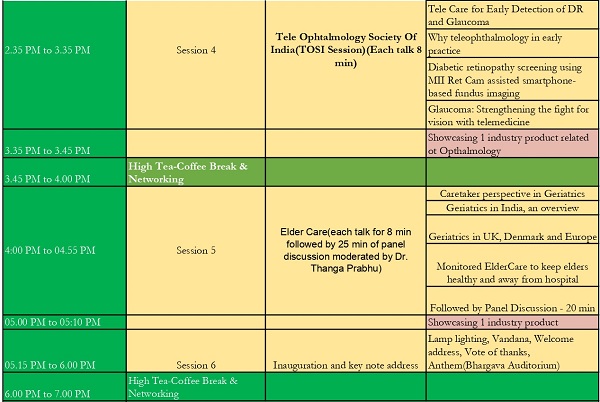
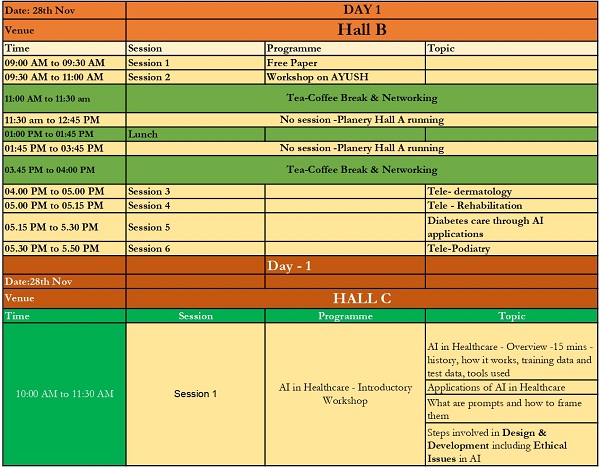
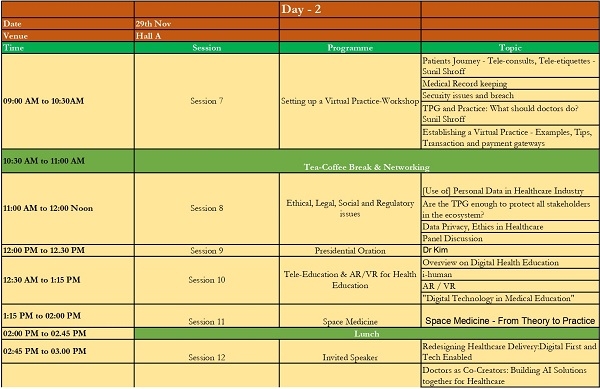
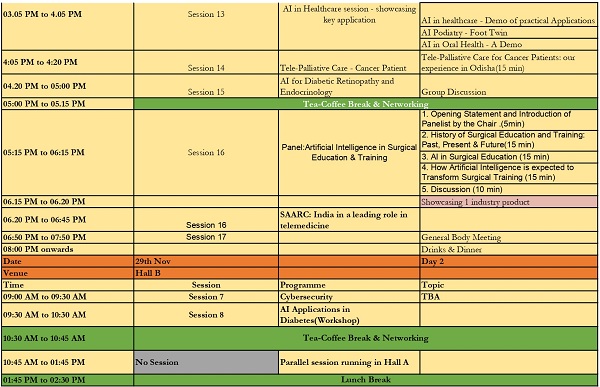
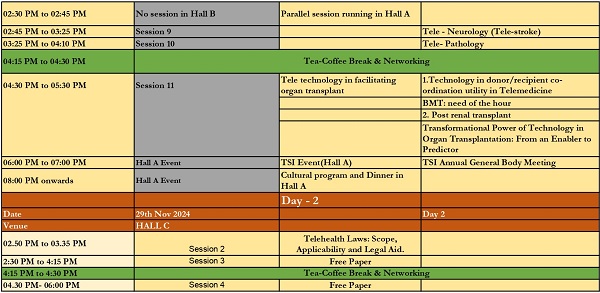
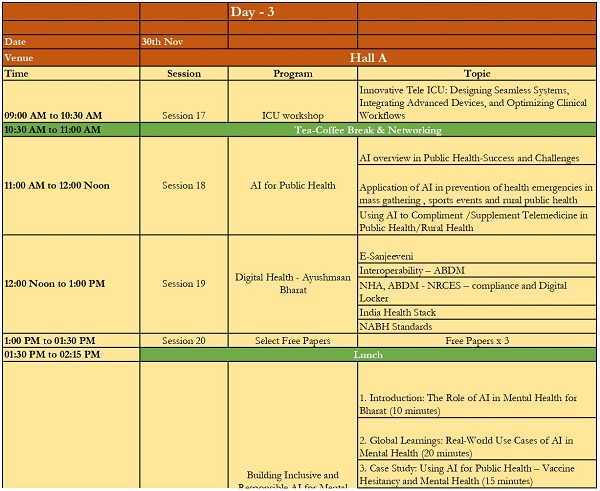
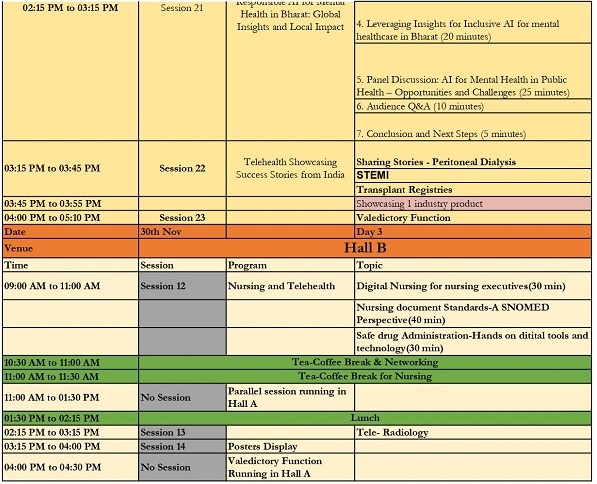

Telemedicine – News from India & Abroad
Advancing Heart Treatment in India With AI-Driven Therapies
Experts emphasize that Artificial Intelligence (AI) has the potential to transform heart disease treatment in India by enabling early detection and personalized therapies…….. Read More
Artificial Intelligence Predicts Diarrheal Outbreaks
Climate change-fueled extreme weather, like devastating floods and prolonged droughts, frequently triggers outbreaks of diarrheal diseases………. Read More
The AI Advantage: Tackling Antibiotic Resistance
A breakthrough in antibiotic resistance detection has been achieved by researchers at the University of Zurich. Using cutting-edge artificial intelligence…… Read More
AI Bots Treated as Social Beings
Humans displayed empathy and protective behavior towards AI bots excluded from a virtual ball game as discovered by a study published in Human Behavior……… Read More
Telemedicine Practice Guidelines – A Foundation Course for RMPs by TSI Faculty
To know more about the Telemedicine Foundation Course click on the link below:
https://tsitn.org/tpg-course/
TSI invites all the TSI Chapters and Members to submit information on their upcoming Webinar or Events (50 words), News related to Telemedicine (200 words) or short articles (500 words) for the monthly e-newsletter.Guidelines for submission to TSI Newsletter-
- Report can be from 500 to 600 words
- Report Should be relevant to Telemedicine or Medical Informatics
- No promotion of self or any product
- Avoid plagiarism
- All references should be included
- Provide any attributions
- Visuals are welcome including video links
- Send full authors name, degrees, affiliations along with a passport sized photograph of good resolution. If multiple authors only main author photo to be sent.
Submission may be sent to – tsigrouptn@gmail.com
Editors reserve the rights for accepting and publishing any submitted material.
Editor in Chief – Dr. Sunil Shroff
Editors – Dr. Senthil Tamilarasan & Dr. Sheila John
Technical Partner- https://www.medindia.net


